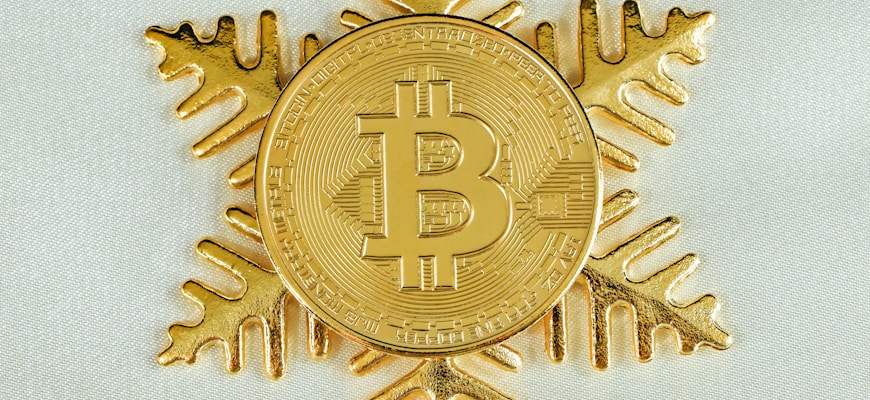The Role of Institutional Investors in Crypto

- Understanding the influence of institutional investors in the cryptocurrency market
- Exploring the impact of institutional money on the volatility of crypto assets
- The rise of institutional investment in the blockchain and cryptocurrency space
- Challenges and opportunities for institutional investors entering the crypto market
- Regulatory considerations for institutional players in the world of cryptocurrencies
- The future of crypto investments: How institutional investors are shaping the landscape
Understanding the influence of institutional investors in the cryptocurrency market
Institutional investors play a significant role in the cryptocurrency market, influencing prices and market trends. These investors, such as hedge funds, pension funds, and asset management firms, have the power to move large amounts of capital, impacting the overall market sentiment. Their involvement can lead to increased liquidity and stability in the market, as well as attracting more retail investors.
One of the main ways institutional investors influence the cryptocurrency market is through their trading activities. When these investors buy or sell large amounts of a particular cryptocurrency, it can cause significant price fluctuations. This can create opportunities for other investors to capitalize on these movements, leading to increased volatility in the market.
In addition to trading, institutional investors also play a role in shaping regulations and policies around cryptocurrencies. Their involvement can help legitimize the market and attract more mainstream adoption. However, it can also lead to increased scrutiny and oversight from regulatory bodies, which can impact the overall growth and development of the market.
Overall, understanding the influence of institutional investors in the cryptocurrency market is crucial for investors looking to navigate this evolving landscape. By staying informed about the actions and strategies of these investors, market participants can make more informed decisions and better position themselves for success in the long term.
Exploring the impact of institutional money on the volatility of crypto assets
Exploring the impact of institutional money on the volatility of digital assets is crucial in understanding the dynamics of the crypto market. Institutional investors, such as hedge funds and asset management firms, have been increasingly entering the cryptocurrency space, bringing with them large amounts of capital and trading expertise.
One of the key ways in which institutional money affects the volatility of crypto assets is through increased liquidity. As institutions trade in larger volumes, they provide more liquidity to the market, which can help stabilize prices and reduce volatility. This influx of liquidity can also lead to tighter bid-ask spreads, making it easier for traders to buy and sell digital assets without causing significant price fluctuations.
However, it is important to note that institutional investors can also contribute to increased volatility in the crypto market. Because institutional investors often have access to sophisticated trading strategies and tools, their trading activities can sometimes amplify price movements in either direction. This can lead to sudden price spikes or crashes, which can catch retail investors off guard.
Overall, the impact of institutional money on the volatility of crypto assets is a complex and multifaceted issue. While institutions can bring stability to the market through increased liquidity, they can also introduce new sources of volatility through their trading activities. As the crypto market continues to evolve, understanding the role of institutional investors will be crucial for investors and regulators alike.
The rise of institutional investment in the blockchain and cryptocurrency space
The blockchain and cryptocurrency space have seen a significant increase in the participation of institutional investors in recent years. This trend is driven by a growing recognition of the potential of digital assets as a new asset class. Institutional investors, such as hedge funds, family offices, and pension funds, are increasingly looking to diversify their portfolios and capture the high returns offered by the crypto market.
One of the key factors driving the rise of institutional investment in the blockchain and cryptocurrency space is the increasing regulatory clarity around digital assets. As governments around the world develop clearer guidelines for the treatment of cryptocurrencies, institutional investors are gaining confidence in the legitimacy and stability of the market.
Another factor contributing to the influx of institutional capital into the crypto space is the emergence of institutional-grade custody solutions. These solutions provide secure storage and management of digital assets, addressing one of the key concerns of institutional investors regarding the security of their investments.
Challenges and opportunities for institutional investors entering the crypto market
There are various challenges and opportunities that institutional investors face when entering the crypto market. It is essential for them to carefully evaluate these factors before making any investment decisions.
- Volatility: The crypto market is known for its high volatility, which can lead to significant price fluctuations. Institutional investors must be prepared to handle this level of risk.
- Regulatory Uncertainty: The regulatory landscape surrounding cryptocurrencies is constantly evolving. Institutional investors need to stay informed about any changes that may impact their investments.
- Security Concerns: The security of digital assets is a major concern for institutional investors. They must implement robust security measures to protect their investments from cyber threats.
- Liquidity: Liquidity can be a challenge in the crypto market, especially for large institutional investors looking to buy or sell large quantities of assets. They need to carefully consider the liquidity of the assets they are interested in.
On the other hand, there are also opportunities for institutional investors in the crypto market. These include:
- Diversification: Cryptocurrencies offer institutional investors a new asset class to diversify their portfolios. This can help reduce overall risk and potentially increase returns.
- High Returns: Despite the risks, the crypto market has the potential for high returns. Institutional investors with a high-risk tolerance may find this appealing.
- Innovation: The crypto market is at the forefront of technological innovation. Institutional investors have the opportunity to invest in cutting-edge projects that could have a significant impact on the future of finance.
Regulatory considerations for institutional players in the world of cryptocurrencies
In the rapidly evolving world of cryptocurrencies, institutional players are increasingly considering entering the market. However, before making this leap, it is crucial for these entities to carefully consider the regulatory landscape that surrounds digital assets.
**Regulatory considerations for institutional players in the world of cryptocurrencies:**
1. **Compliance:** One of the key aspects that institutional investors need to take into account is regulatory compliance. With governments around the world beginning to establish frameworks for cryptocurrencies, it is essential for institutional players to ensure that they are operating within the bounds of the law.
2. **Licensing:** Another important consideration for institutional investors is licensing. Many jurisdictions require firms dealing with cryptocurrencies to obtain specific licenses to operate legally. Failure to do so can result in severe penalties and reputational damage.
3. **Anti-Money Laundering (AML) and Know Your Customer (KYC) Regulations:** Institutional players must also adhere to AML and KYC regulations to prevent illicit activities such as money laundering and terrorist financing. Implementing robust AML and KYC procedures can help institutions build trust with regulators and customers.
4. **Tax Implications:** The tax treatment of cryptocurrencies varies from country to country. Institutional investors must carefully consider the tax implications of their cryptocurrency transactions to ensure compliance with tax laws and avoid any potential legal issues.
5. **Data Security:** Institutional players should also prioritize data security when dealing with cryptocurrencies. The decentralized nature of blockchain technology can make it vulnerable to cyber attacks. Implementing robust security measures can help protect institutional investors’ assets and sensitive information.
In conclusion, institutional investors looking to enter the world of cryptocurrencies must carefully navigate the regulatory landscape to ensure compliance with laws and regulations. By taking the necessary precautions and staying informed about the evolving regulatory environment, institutional players can mitigate risks and seize opportunities in the crypto market.
The future of crypto investments: How institutional investors are shaping the landscape
As the cryptocurrency market continues to evolve, institutional investors are playing an increasingly significant role in shaping the landscape of crypto investments. These large financial entities, such as hedge funds, pension funds, and asset management firms, are bringing a new level of legitimacy and stability to the crypto space.
Institutional investors are attracted to cryptocurrencies for their potential high returns and diversification opportunities. They are also drawn to the decentralized nature of digital assets, which can provide a hedge against traditional financial markets. As a result, many institutions are now incorporating cryptocurrencies into their investment portfolios.
One of the key ways in which institutional investors are influencing the crypto market is through their large-scale trades. These players have the power to move markets with their buying and selling activities, which can impact prices and overall market sentiment. Their involvement brings a level of liquidity and depth to the market that was previously lacking.
Furthermore, institutional investors are also driving the development of new financial products and services in the crypto space. This includes the introduction of crypto exchange-traded funds (ETFs), futures contracts, and other investment vehicles that make it easier for traditional investors to gain exposure to digital assets.
Overall, the future of crypto investments is being shaped by the increasing participation of institutional investors. Their entry into the market brings with it a level of professionalism and expertise that is helping to mature the industry and attract more mainstream adoption. As these players continue to allocate capital to cryptocurrencies, the market is likely to see continued growth and evolution in the years to come.



